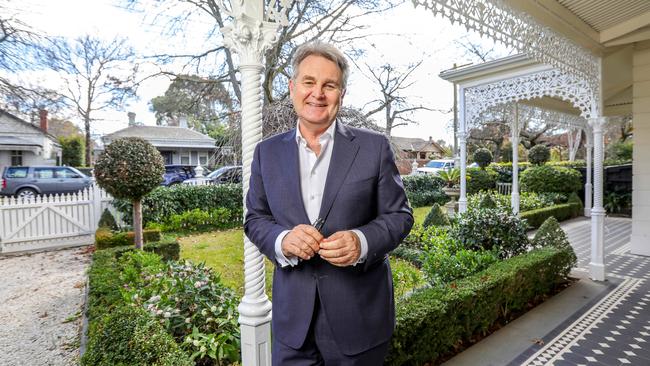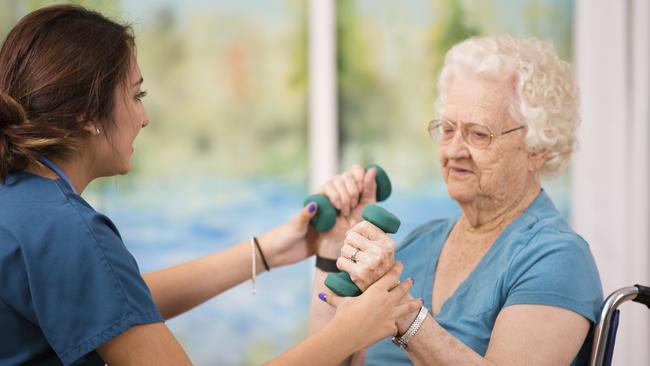Demographer Bernard Salt says the challenge ahead is the arrival of the ‘wall’ of baby boomers
Leading demographer Bernard Salt says baby boomers will start turning 80 next year with health and aged care services set for the ultimate test.

QLD Business
Don't miss out on the headlines from QLD Business. Followed categories will be added to My News.
Australia’s health and aged care infrastructure will face testing times with the arrival of a “wall” of baby boomers reaching their 80s over the next decade, according to leading demographer Bernard Salt.
Mr Salt said Australia had gone some way to preparing for the tsunami of people born after 1946 who are reaching an age when they will increasingly rely on medical services and aged care.
“I think we’re moving along the right path but the real test is just ahead,” he said.
“The great challenge ahead is when baby boomers start going into their 80s. June next year is when the first baby boomer turns 80 and in the lead up to the 2032 Olympics we will see the baby boomers push well into their 80s.
“I hope we will have the ability to escalate and ratchet up. But I’m reserving judgement because that wall of baby boomers has yet to hit us.”
Mr Salt said the number of Australians aged 85-plus was expected to rise from 534,000 in 2021 to more than 2 million by 2071.
There is strong net growth of 370,000, or 68 per cent, projected between 2022 and 2032, due to the baby boomers born from 1946 onwards tripping across the 85-line.

Mr Salt was at a breakfast in Brisbane for the launch of a $110m Windsor Health Quarter development, which is expected to start construction mid year for completion in 2027.
The building, which is being developed as a joint venture between specialist medical developers JGP Property and the owners of the site at 309 Herston Rd, Windsor, sits on the edge of Australia’s fifth largest healthcare precinct, serving a catchment of 1.1 million people in the inner northern suburbs.
The 5000 sqm seven-level purpose-built Class 9a medical building offering flexible tenancies, a 38-room medi-hotel to support regional patients and post-treatment recovery, and 12 Specialist Disability Accommodation apartments. The centre includes 179 basement car spaces and is located just 800m from the Royal Brisbane and Women’s Hospital.
Mr Salt said that as the number of healthcare professionals continues to rise, demand for premium medical suites in accessible, central locations is likely to intensify.
“Between 2016 and 2021, we saw a 36 per cent increase in medical specialists across 19 occupations in Australia — that’s an additional 3900 professionals, according to ABS Census data — with most growth being recorded in anaesthetists, orthopaedic surgeons and cardiologists,” he said.
“As access becomes more competitive, those who can secure space in purpose-built facilities like Windsor Health Quarter will be well placed to serve a fast-growing and demographically complex region.”

JGP Property director Josh Peacock said the project’s timing was particularly strategic for healthcare professionals looking to secure a long-term base.
He said it was currently 30 per cent pre-leased and “tracking well” for further precommitments.
“With major infrastructure projects ramping up ahead of the Brisbane 2032 Olympic Games — including sporting venues, athletes’ villages and transport upgrades — we’re entering a decade where competition for construction resources will intensify and new healthcare projects may be harder to deliver,” Mr Peacock said.
“Our timing to build now means Windsor Health Quarter represents one of the best opportunities this decade for healthcare professionals to secure suites in a purpose-built facility of this calibre in a strategic location to take advantage of Brisbane’s anticipated growth.”





